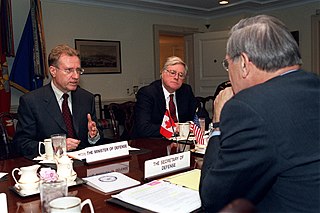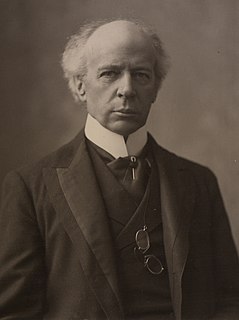A Quote by Greg Ip
Tariffs are in the end taxes. And somebody has to pay that tax. I think one thing people are forgetting is that trade disputes are two-sided. When the United States imposes tariffs on a partner like Canada, there is always a possibility that Canada will say that's not fair and retaliate. And at that point, you have to ask the question, - which U.S. industry will suffer because the Canadians retaliated against it?
Related Quotes
Thirty-five states have Canada as their largest export market. Let's say we get into a trade war with the United States - hopefully not, but let's say. Many states in the union are going to have trouble and more costs getting their stuff up to Canada. If we make the border a little thicker in terms of tariffs, and hit back, that will start to impact the states, in particular large business interests that are in Canada. And that starts to put indirect pressure on the White House.
Like all Canadians, I was deeply frustrated by the decision of U.S. President Donald Trump to impose tariffs on Canadian steel and aluminum. Conservatives are the party of free trade, and numerous Conservative MPs, including our leader Andrew Scheer, have travelled to the United States to help make the case for Canada.
What [Donald] has put up for question is this idea of tariffs. Initially, he said if China won't stop taking advantage of us and manipulating their currency, then I will put tariffs in place. That spooked everybody because if you charge China a fee and an extra tariff for anything they bring into the United States, what's going to happen is that companies carrying those goods are going to raise prices. It's going to be expensive for people. People got scared of that, but then he walked that [idea] back. I don't think anybody is expecting heavy tariffs on anything.
The potential of Mexico, Canada and the United States is enormous. We have a combined population of half a billion people; peaceful trade-friendly borders that are the envy of the world; the prospect of energy independence is within reach and will change the geopolitical situation of United States; we do a trillion dollars in trade among the three countries; more than 18,000 American companies are involved in foreign direct investment in Mexico and Canada; an increasing number of Mexican companies are creating jobs in the United States.
We know from drafts that the Donald Trump's administration has circulated on Capitol Hill, there are a few things they would like to change about NAFTA. They would like to, for example, have the ability to impose tariffs just because imports are surging from Canada or Mexico, not necessarily because they're being sold unfairly. They want more freedom to use our countervailing the subsidy laws against Canada and Mexico.
It does sound like a surprise, but it shouldn't be surprising. The Canada-U.S. trade relationship is still the world's largest. And a relationship that size always generates disputes. And this particular dispute on lumber tariff didn't fall out of a clear spring sky. It's been going on for literally decades. It's rooted in the different way Canada and the United States charges forestry companies for the trees that they cut down and turn into lumber.
Canada is lacking two things. It's true. Don't make me say it again. The first is Olympic Heroes [...] The second thing that Canada is lacking is Memorial Day, which is today by the way, where we in the States celebrate our war heroes by having barbeques . And I realize here in Canada you can't have barbeques because you'd probably be attacked by a moose, or caribou, or even a grizzly.
When China got into the WTO, that allowed it to sell into any other country within the WTO - not just the United States - at the lowest tariffs that country offered. And the other countries could sell into China at the lowest tariffs that China offered. The problem, right off the bat, was that China had much higher tariffs than everywhere else, so the U.S. and Europe in particular got the short end of that stick.
I say a few good things about Canada in the book, you know. Americans are weird, though. We refuse to look at other countries. Start with Canadians - I want to think you aren't that different, so why can't we do our incarceration policies more like Canada? If we still had a 1970 level of incarceration which was the same as Canada's then and now, I never would have written this.






























